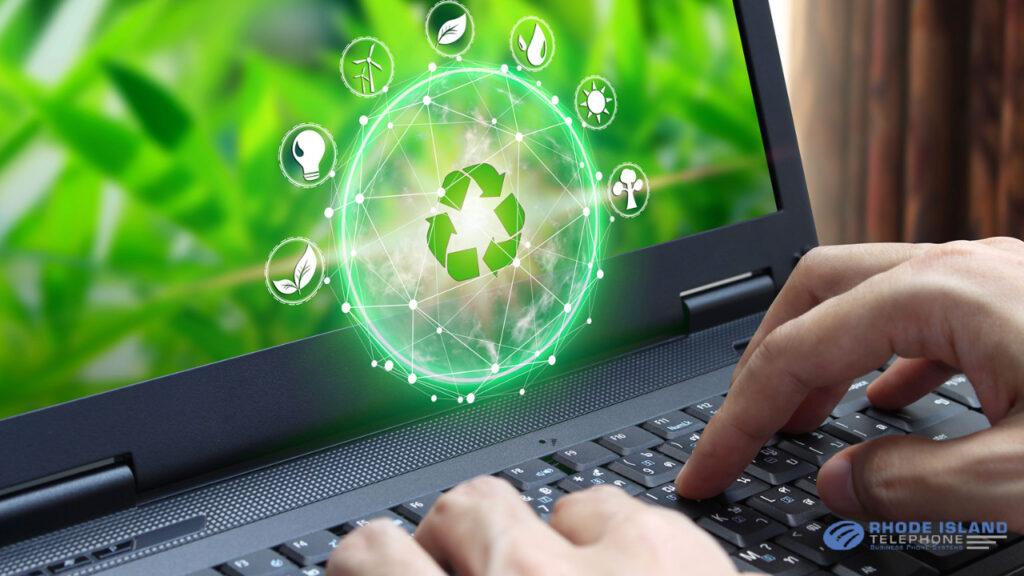
When you think of going green you probably think about recycling, using less water, and composting or creating your own garden. You should also be thinking about green technology, which offers you another way to reduce your footprint both at home and in your business.
How VoIP and the Environment Go Hand in Hand
Much like electric vehicles, solar panels, and LED lighting, VoIP (Voice over Internet Protocol) is a modern solution that replaces outdated infrastructure with something better—for your business and the planet.
Landlines are analog, inefficient, and wasteful. By switching to a cloud-hosted VoIP system, you’re not just upgrading your communication tools—you’re making a sustainable choice that can reduce your carbon footprint.
Why VoIP Is a Green Technology
Your outdated analog phone may be keeping you connected, but it’s not doing any good for the environment. As sustainability becomes more urgent, many businesses are seeking smarter ways to operate. Here’s how VoIP contributes to a cleaner, greener future:

Remote Working Means Fewer Emissions
With VoIP, your team can work from home or on the go, eliminating the need for daily commuting. That means fewer cars on the road, reduced fossil fuel consumption, and lower emissions. Less time in the office also means reduced energy usage from lighting, heating, and cooling.
Less Paper, More Trees
Fax-to-email and digital collaboration tools built into VoIP systems drastically reduce the need for paper. Whether it’s contracts, messages, or internal memos, going digital keeps more trees in the ground—and out of the shredder.
Reduce and Reuse
Transitioning to VoIP doesn’t mean tossing out all your existing equipment. Many businesses can reuse compatible phones, use their smartphones, or adopt softphone apps. Even better, some VoIP providers will buy back working equipment or recommend recycling options.
Minimal Hardware = Minimal Waste
Unlike traditional phone systems, VoIP requires very little physical hardware. Everything runs through cloud servers, which are optimized and maintained off-site. Fewer devices mean less plastic, metal, and e-waste, and a smaller environmental footprint.
Plus, scaling your VoIP system is as easy as downloading an app—not rewiring your office.
Green Technology Solution
This Earth Day, take the opportunity to rethink how your business communicates. VoIP is more than just a modern phone system—it’s a green technology that helps reduce waste, save energy, and support sustainable growth.
Whether you’re a small business or a growing enterprise, making the switch is a smart step toward a more eco-friendly future.
Contact Rhode Island Telephone today for a free quote, and let’s build a cleaner, greener, and more connected world—one call at a time.




